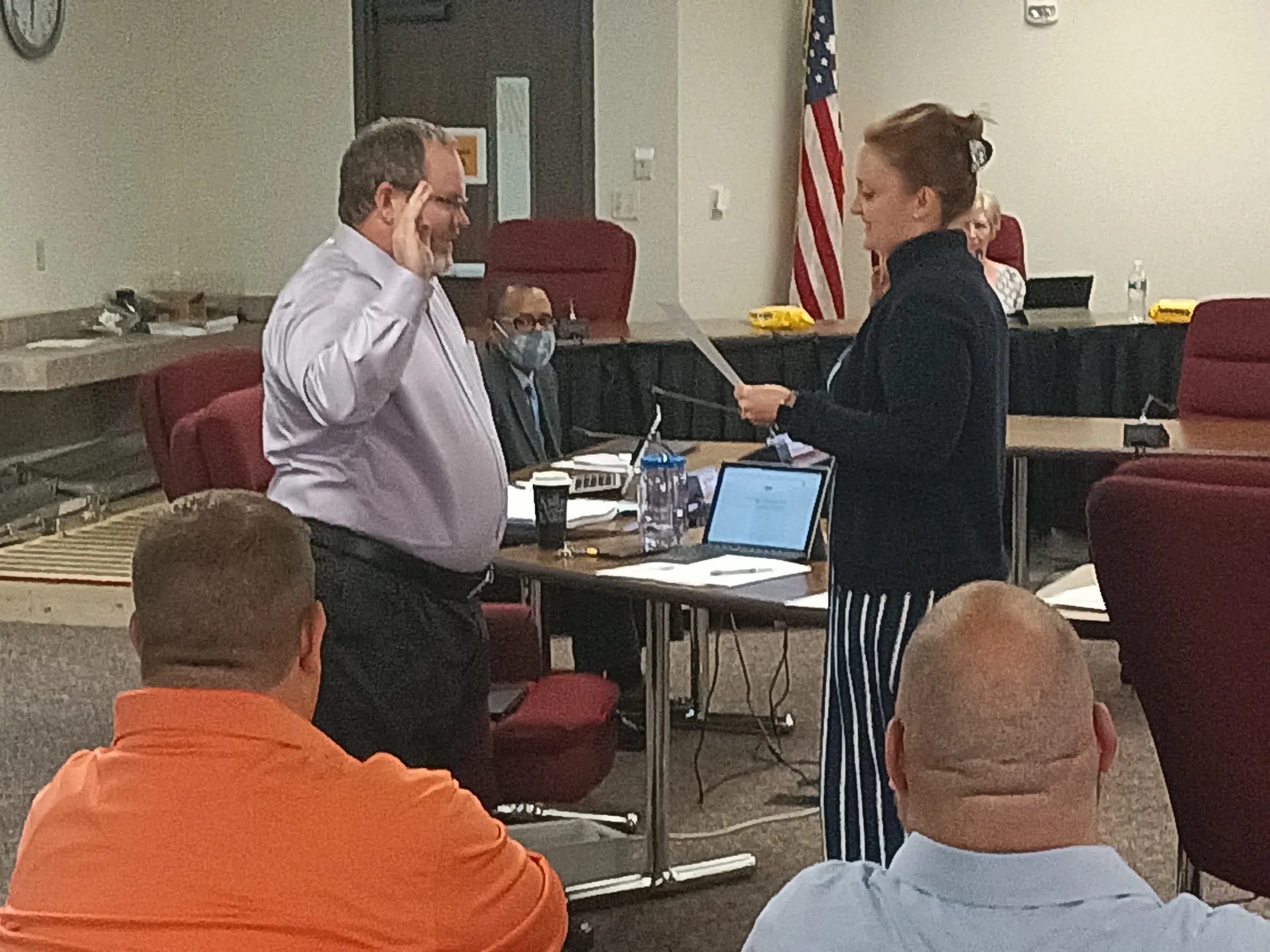Story by Kevin Woodard
In a 5 – 2 vote the Bloomington City Council approved Mayor Mboka Mwilambwe’s appointment of Grant Walch to fill the Ward one seat on the council vacated with the resignation of Jamie Mathy. Voting against Walch were Councilmembers Jeff Crabill of Ward eight and Julie Emig of Ward four.
Crabhill said he didn’t think Walch was the right person to replace Jamie Mathy. Crabill described Mathy as middle of the road and expressed his opinion that with this appointment the council was shifting to the right.
Cities 92.9 asked Emig for comment after the meeting and she said, “All of the applications were really strong but some of the applicants specifically called out some of the things that Alderman Mathy had presented and I just felt that given everyone was strong I felt that those that were in line with Alderman Mathy were worthy of my support because there are things he initiated that I thought given he was duly elected would be good to see carried forward such as the infill initiatives that he put forward in terms of development and things like that.”
Nick Becker, a councilman, said Walch is capable of making good judgment and thinks he will be a data-driven guy. Becker said unlike the others he wouldn’t try to duplicate the councilman who left, but rather select the best candidate.
Cities asked Walch to tell us about his work in scouting and he responded, “With my son I went through as Cub Scout leader. I was the pack leader. … In the girl scouts our daughter was a girl scout … and then I had an opportunity before the councils merged. I was on the local council here and was part of the council that brought together the merger. So that was an interesting experience to be part of that.”
Immediately after being approved Walch was sworn in and took his seat on the council.
Resurfacing
Also on the agenda was $8.75 million for street resurfacing work. The council was very supportive of the largest amount of street resurfacing work Bloomington ever planned to complete in a single year’s budget.
Council member Nick Becker of Ward five asked if the proposed budget is enough to help us recover or just keeping us where we are. Becker said this wasn’t enough money. The $8.75 million is going towards concrete and asphalt projects as well.
“We tend to just say, ‘If you take that money that’s been budgeted all the time and spend it as wisely as possible…that doesn’t necessarily get us to where we need to go,” said Becker. “The vote last night was a big win. Was it a big enough win? No. Staff did give us a good, reasonable answer…they don’t believe there is the capacity to get more done this year. We are going to be able to do a third more of lane miles with that additional money, but I hope going forward we can budget more instead of just treading water.”
Public Works Director Kevin Kothe responded that due to inflation it is just keeping us where we are.
City Engineer Craig Shonkwiler added that there is a limited supply of companies and associated workers to do more work and therefore when there is more work that needs doing than there are companies to do the work that the companies are able to charge more and that impacts costs as well.
Ward three Council member Shelia Montney asked if other than money spent as a metric to measure the amount of work being done was their another metric that could be used to show the amount of work done so that we could see if more money was getting more work done, the same amount of work done or possibly even less work due to inflation. Montney mentioned for example that she had read that the cost of asphalt was up 40%.
Kothe advised that this years plan would do approximately 20 lane miles. Later in the meeting Shonkwiler mentioned that the city has 800 lane miles of streets.
Knowing there are 800 lane miles in the city and the largest budgeted amount ever will repave 20 miles on its on tells you the magnitude of the repaving problem. Simple math would suggest your repaving program is on a 40 year cycle. The problem is neither asphalt nor portland cement concrete streets last for 40 years.
Council member Donna Boleyn of Ward two may not have done the math but she showed her grasp of the problem saying, “With these lane miles this is going to take forever.” Later she added, “I am not going to criticize the messenger. This is on the council.”
The problem is further compounded by the fact that Bloomington is not alone with this problem. The situation is very typical across the country if not the norm. And given market realities its not even necessarily fixable.
When more work is suddenly funded the companies are going to charge more and they are going to have problems finding workers. They can’t afford to hire up and purchase enough equipment for a one year spike.
Therefore the only way out is sustainable increases in spending for streets over longer periods measured in years to allow contractors to purchase expensive large equipment and staff up. This will require Public Works Departments to develop six to eight year pans and city councils to commit to them. Only then will local contractors feel confident enough to invest more in their companies.







